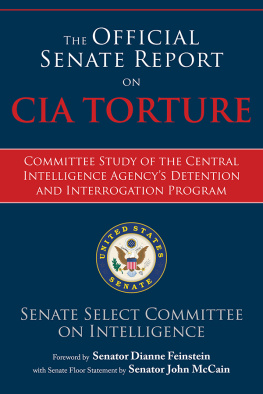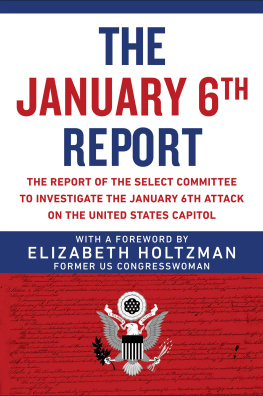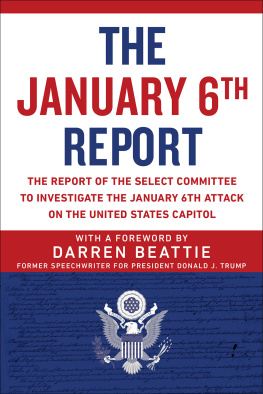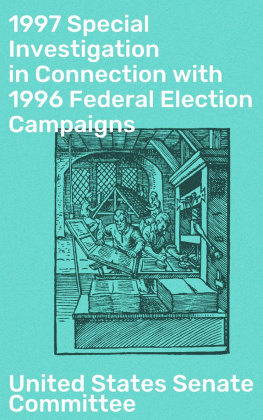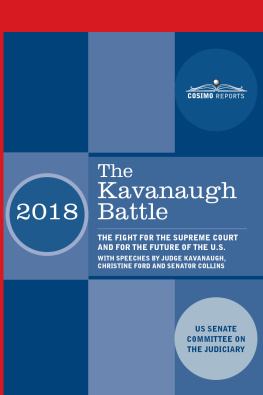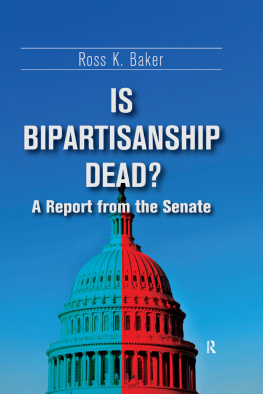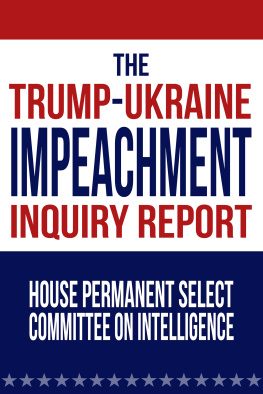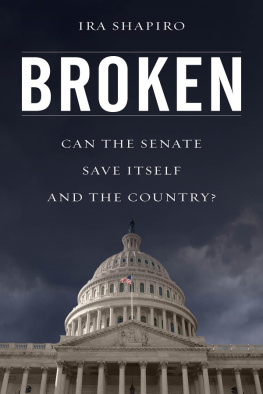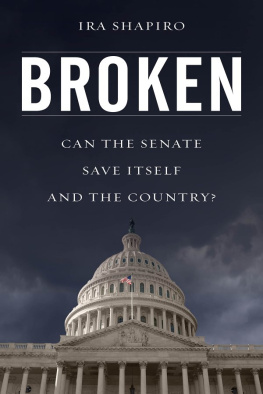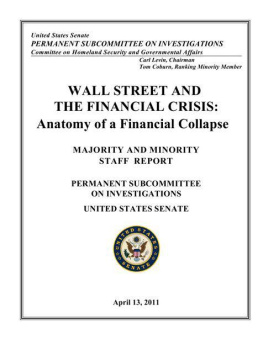Senate Select Committee on Intelligence - The Official Senate Report on CIA Torture
Here you can read online Senate Select Committee on Intelligence - The Official Senate Report on CIA Torture full text of the book (entire story) in english for free. Download pdf and epub, get meaning, cover and reviews about this ebook. year: 2010, publisher: Skyhorse, genre: Science / Politics. Description of the work, (preface) as well as reviews are available. Best literature library LitArk.com created for fans of good reading and offers a wide selection of genres:
Romance novel
Science fiction
Adventure
Detective
Science
History
Home and family
Prose
Art
Politics
Computer
Non-fiction
Religion
Business
Children
Humor
Choose a favorite category and find really read worthwhile books. Enjoy immersion in the world of imagination, feel the emotions of the characters or learn something new for yourself, make an fascinating discovery.
- Book:The Official Senate Report on CIA Torture
- Author:
- Publisher:Skyhorse
- Genre:
- Year:2010
- Rating:5 / 5
- Favourites:Add to favourites
- Your mark:
- 100
- 1
- 2
- 3
- 4
- 5
The Official Senate Report on CIA Torture: summary, description and annotation
We offer to read an annotation, description, summary or preface (depends on what the author of the book "The Official Senate Report on CIA Torture" wrote himself). If you haven't found the necessary information about the book — write in the comments, we will try to find it.
The Official Senate Report on CIA Torture — read online for free the complete book (whole text) full work
Below is the text of the book, divided by pages. System saving the place of the last page read, allows you to conveniently read the book "The Official Senate Report on CIA Torture" online for free, without having to search again every time where you left off. Put a bookmark, and you can go to the page where you finished reading at any time.
Font size:
Interval:
Bookmark:

First Skyhorse Publishing edition 2015
All rights to any and all materials in copyright owned by the publisher are strictly reserved by the publisher. All inquiries should be addressed to Skyhorse Publishing, 307 West 36th Street, 11th Floor, New York, NY 10018.
Skyhorse Publishing books may be purchased in bulk at special discounts for sales promotion, corporate gifts, fund-raising, or educational purposes. Special editions can also be created to specifications. For details, contact the Special Sales Department, Skyhorse Publishing, 307 West 36th Street, 11th Floor, New York, NY 10018 or .
Skyhorse and Skyhorse Publishing are registered trademarks of Skyhorse Publishing, Inc., a Delaware corporation.
Visit our website at www.skyhorsepublishing.com.
10 9 8 7 6 5 4 3 2 1
Library of Congress Cataloging-in-Publication Data is available on file.
Cover design by Brian Peterson
Print ISBN: 978-1-63450-602-1
Ebook ISBN: 978-1-63450-603-8
Printed in the United States of America
Senate Floor Statement
by Senator John McCain
December 9th 2014

M r. President, I rise in support of the releasethe long-delayed releaseof the Senate Intelligence Committees summarized, unclassified review of the so-called enhanced interrogation techniques that were employed by the previous administration to extract information from captured terrorists. It is a thorough and thoughtful study of practices that I believe not only failed their purposeto secure actionable intelligence to prevent further attacks on the U.S. and our alliesbut actually damaged our security interests, as well as our reputation as a force for good in the world.
I believe the American people have a rightindeed, a responsibilityto know what was done in their name; how these practices did or did not serve our interests; and how they comported with our most important values.
I commend Chairman Feinstein and her staff for their diligence in seeking a truthful accounting of policies I hope we will never resort to again. I thank them for persevering against persistent opposition from many members of the intelligence community, from officials in two administrations, and from some of our colleagues.
The truth is sometimes a hard pill to swallow. It sometimes causes us difficulties at home and abroad. It is sometimes used by our enemies in attempts to hurt us. But the American people are entitled to it, nonetheless.
They must know when the values that define our nation are intentionally disregarded by our security policies, even those policies that are conducted in secret. They must be able to make informed judgments about whether those policies and the personnel who supported them were justified in compromising our values; whether they served a greater good; or whether, as I believe, they stained our national honor, did much harm and little practical good.
What were the policies? What was their purpose? Did they achieve it? Did they make us safer? Less safe? Or did they make no difference? What did they gain us? What did they cost us? The American people need the answers to these questions. Yes, some things must be kept from public disclosure to protect clandestine operations, sources and methods, but not the answers to these questions.
By providing them, the Committee has empowered the American people to come to their own decisions about whether we should have employed such practices in the past and whether we should consider permitting them in the future. This report strengthens self-government and, ultimately, I believe, Americas security and stature in the world. I thank the Committee for that valuable public service.
I have long believed some of these practices amounted to torture, as a reasonable person would define it, especially, but not only the practice of waterboarding, which is a mock execution and an exquisite form of torture. Its use was shameful and unnecessary; and, contrary to assertions made by some of its defenders and as the Committees report makes clear, it produced little useful intelligence to help us track down the perpetrators of 9/11 or prevent new attacks and atrocities.
I know from personal experience that the abuse of prisoners will produce more bad than good intelligence. I know that victims of torture will offer intentionally misleading information if they think their captors will believe it. I know they will say whatever they think their torturers want them to say if they believe it will stop their suffering. Most of all, I know the use of torture compromises that which most distinguishes us from our enemies, our belief that all people, even captured enemies, possess basic human rights, which are protected by international conventions the U.S. not only joined, but for the most part authored.
I know, too, that bad things happen in war. I know in war good people can feel obliged for good reasons to do things they would normally object to and recoil from.
I understand the reasons that governed the decision to resort to these interrogation methods, and I know that those who approved them and those who used them were dedicated to securing justice for the victims of terrorist attacks and to protecting Americans from further harm. I know their responsibilities were grave and urgent, and the strain of their duty was onerous.
I respect their dedication and appreciate their dilemma. But I dispute whole-heartedly that it was right for them to use these methods, which this report makes clear were neither in the best interests of justice nor our security nor the ideals we have sacrificed so much blood and treasure to defend.
The knowledge of tortures dubious efficacy and my moral objections to the abuse of prisoners motivated my sponsorship of the Detainee Treatment Act of 2005, which prohibits cruel, inhuman or degrading treatment of captured combatants, whether they wear a nations uniform or not, and which passed the Senate by a vote of 90-9.
Subsequently, I successfully offered amendments to the Military Commissions Act of 2006, which, among other things, prevented the attempt to weaken Common Article 3 of the Geneva Conventions, and broadened definitions in the War Crimes Act to make the future use of waterboarding and other enhanced interrogation techniques punishable as war crimes.
There was considerable misinformation disseminated then about what was and wasnt achieved using these methods in an effort to discourage support for the legislation. There was a good amount of misinformation used in 2011 to credit the use of these methods with the death of Osama bin Laden. And there is, I fear, misinformation being used today to prevent the release of this report, disputing its findings and warning about the security consequences of their public disclosure.
Will the reports release cause outrage that leads to violence in some parts of the Muslim world? Yes, I suppose thats possible, perhaps likely. Sadly, violence needs little incentive in some quarters of the world today. But that doesnt mean we will be telling the world something it will be shocked to learn. The entire world already knows that we water-boarded prisoners. It knows we subjected prisoners to various other types of degrading treatment. It knows we used black sites, secret prisons. Those practices havent been a secret for a decade.
Terrorists might use the reports re-identification of the practices as an excuse to attack Americans, but they hardly need an excuse for that. That has been their lifes calling for a while now.
Font size:
Interval:
Bookmark:
Similar books «The Official Senate Report on CIA Torture»
Look at similar books to The Official Senate Report on CIA Torture. We have selected literature similar in name and meaning in the hope of providing readers with more options to find new, interesting, not yet read works.
Discussion, reviews of the book The Official Senate Report on CIA Torture and just readers' own opinions. Leave your comments, write what you think about the work, its meaning or the main characters. Specify what exactly you liked and what you didn't like, and why you think so.

